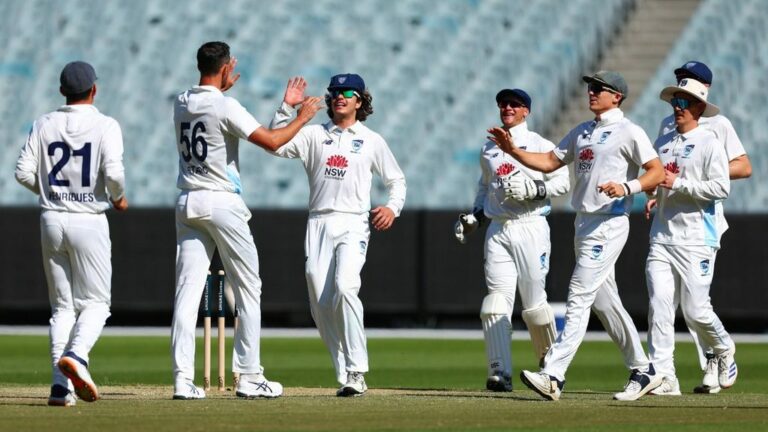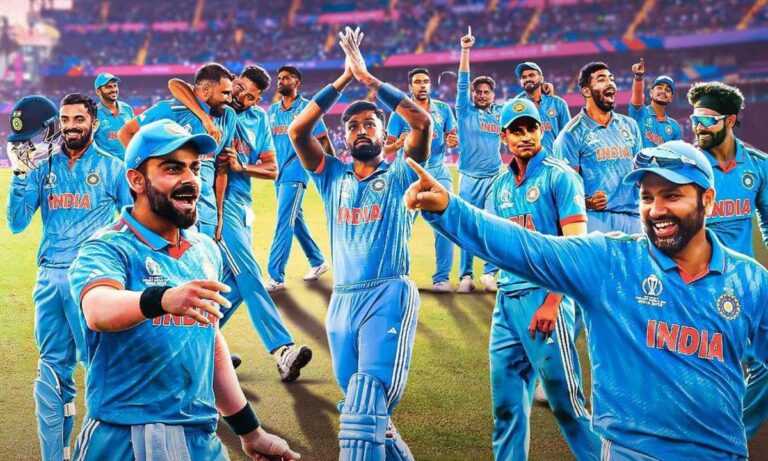Exploring the Role of Nutrition in Cricket
Gold365, Play99exch: Cricket, being a sport that demands a high level of physical and mental endurance, places significant emphasis on the role of nutrition in supporting optimal performance. Proper nutrition is the cornerstone of success for cricket players, as it provides the essential fuel needed to power through long matches and training sessions.
A well-balanced diet tailored to the specific needs of cricket athletes can enhance stamina, endurance, cognitive function, and overall physical well-being. By consuming the right mix of nutrients, players can maintain energy levels, improve focus, speed up recovery, and reduce the risk of injuries. In essence, prioritizing proper nutrition isn’t just about eating well – it’s about arming oneself with the tools necessary to excel in the competitive world of cricket.
Understanding the Nutritional Needs of Cricket Athletes
Cricket athletes have unique nutritional needs that must be met to support their training and performance on the field. Proper nutrition plays a crucial role in helping players stay energized, focused, and maintain their strength and stamina throughout both practice sessions and matches.
Carbohydrates are essential for cricket players as they provide the primary source of energy needed for intense physical activity. Including complex carbohydrates such as whole grains, fruits, and vegetables in their diet can help athletes sustain their energy levels and perform at their best during long hours of play. Additionally, adequate protein intake is important for muscle repair and recovery, especially after rigorous training sessions or matches.
Key Nutrients for Optimal Performance in Cricket
Cricket players require a well-balanced diet to support their intense physical and mental demands during training and matches. Protein is a crucial nutrient for muscle repair and growth, especially after strenuous workouts or games. Lean sources of protein such as chicken, fish, eggs, and legumes can help cricket athletes recover and build strength effectively.
In addition to protein, carbohydrates play a vital role in providing energy for cricket players during long hours of training and matches. Opt for complex carbohydrates like whole grains, fruits, and vegetables to sustain energy levels throughout the game. Moreover, incorporating healthy fats from sources like nuts, seeds, and avocados can help in maintaining overall health and supporting cognitive function on the field.
How Nutrition Impacts Stamina and Endurance in Cricket
Proper nutrition plays a crucial role in enhancing stamina and endurance levels for cricket players. Fueling the body with the right balance of carbohydrates, proteins, and fats ensures sustained energy production during intense training sessions and matches. Carbohydrates are especially vital as they serve as the primary source of fuel for muscles, helping athletes maintain their performance throughout a game.
Inadequate nutrition can lead to fatigue and reduced endurance in cricket players, impacting their ability to perform at their best. Without sufficient nutrients, the body may struggle to recover from physical exertion, leading to compromised stamina levels over time. Ensuring proper hydration and replenishing electrolytes is also essential for maintaining endurance on the field, as dehydration can impair both physical and cognitive performance.
The Role of Hydration in Cricket Performance
Proper hydration is crucial for cricket players to maintain optimal performance on the pitch. Dehydration can lead to decreased focus, coordination, and overall physical performance, affecting a player’s ability to bat, bowl, or field effectively. In the intense heat and long hours of a cricket match, players lose significant amounts of fluid through sweat, making it essential to replenish these losses by consistently drinking water or sports drinks throughout the game.
In addition to maintaining fluid balance, adequate hydration is vital for regulating body temperature and preventing heat-related illnesses such as heat exhaustion or heat stroke. Cricket players should start hydrating well before a match, continue to drink fluids during breaks in play, and replenish lost fluids post-match to support recovery. Failing to stay properly hydrated not only impacts performance but can also increase the risk of injuries such as cramps, muscle strains, and fatigue, hindering a player’s ability to compete at their best level.
Nutrition Strategies for Pre-Match Preparation in Cricket
Pre-match preparation in cricket is crucial for players looking to optimize their performance on game day. One key aspect of pre-match nutrition is ensuring adequate carbohydrate intake to fuel the muscles with the energy they need for sustained physical exertion. Carbohydrates serve as the primary source of energy for high-intensity activities like cricket, making it imperative for players to consume a balanced meal rich in complex carbohydrates such as whole grains, fruits, and vegetables a few hours before a game.
In addition to carbohydrates, cricket players should also pay attention to their protein intake during pre-match preparation. Protein plays a vital role in muscle repair and development, making it essential for maintaining muscle mass and strength during intense physical activity. Including lean sources of protein such as chicken, fish, beans, or tofu in pre-match meals can help players support muscle recovery and optimize their performance on the field.
Post-Match Recovery: The Role of Nutrition in Cricket
After a rigorous cricket match, proper nutrition plays a crucial role in aiding the recovery process of cricket players. Consuming a balanced meal rich in carbohydrates and proteins within 30 minutes to an hour after the game is essential to replenish glycogen stores and promote muscle repair. Including foods like lean meats, whole grains, fruits, and vegetables can help restore energy levels and repair damaged muscle tissues, supporting the body’s recovery process.
In addition to macronutrients, hydration is key for post-match recovery in cricket. Replacing lost fluids and electrolytes is vital to prevent dehydration and maintain optimal performance levels. Encouraging players to drink water or electrolyte-rich beverages in the hours following a match can aid in rehydration and support muscle function. Incorporating these nutrition strategies into post-match routines can help cricket players recover faster and be ready for their next game.
Common Nutritional Mistakes to Avoid in Cricket
One common mistake that cricket players often make is neglecting to consume an adequate amount of carbohydrates before a match or training session. Carbohydrates are the body’s primary source of energy, especially during intense physical activity like cricket. Without enough carbohydrates in the diet, players may experience fatigue and a decrease in performance on the field.
Another nutritional mistake to avoid is improper hydration. Dehydration can significantly impact a player’s stamina and endurance during a cricket match. It’s essential for cricket athletes to drink enough water before, during, and after the game to stay properly hydrated and maintain peak performance levels. Neglecting hydration can lead to cramping, decreased focus, and overall reduced athletic output.
The Link Between Nutrition and Injury Prevention in Cricket
Proper nutrition plays a crucial role in preventing injuries among cricket players. Ensuring that athletes consume a balanced diet rich in essential nutrients like proteins, carbohydrates, fats, vitamins, and minerals can help support their overall physical health and reduce the risk of injuries during training and matches. In particular, nutrients like calcium and vitamin D are essential for maintaining strong bones and preventing fractures, which are common injuries in cricket due to the repetitive stress placed on the body during activities like bowling and fielding.
Moreover, hydration is key in injury prevention as well. Dehydration can lead to muscle cramps and fatigue, increasing the likelihood of strains and sprains on the field. Cricket players should prioritize staying adequately hydrated before, during, and after matches to support their performance and reduce the risk of injuries. By paying attention to their nutritional intake and hydration levels, athletes can proactively take steps to safeguard themselves against common injuries and enhance their longevity in the sport.
Expert Tips for Creating a Cricket-Specific Nutrition Plan
When devising a nutrition plan tailored specifically for cricket players, it is crucial to consider the demanding physical and mental requirements of the sport. Start by focusing on incorporating a good balance of carbohydrates, proteins, fats, vitamins, and minerals into the diet. Carbohydrates are essential for providing the energy needed during intense matches, while proteins aid in muscle repair and recovery. Including healthy fats such as avocados, nuts, and seeds can help support overall brain function and energy levels on the field.
Moreover, hydration plays a vital role in cricket performance, so ensuring adequate water intake before, during, and after games is key. Electrolyte-rich beverages can also be beneficial in replenishing lost minerals due to sweating. Finally, timing is crucial when it comes to nutrition for cricket players. Plan meals and snacks strategically around training sessions and matches to optimize performance and aid in efficient recovery.
Why is proper nutrition important for cricket players?
Proper nutrition is important for cricket players as it provides the necessary energy, nutrients, and hydration needed for optimal performance on the field.
What are some key nutrients that are important for cricket players?
Some key nutrients for cricket players include carbohydrates for energy, protein for muscle repair and growth, and hydration for maintaining performance and preventing dehydration.
How does nutrition impact stamina and endurance in cricket?
Nutrition plays a crucial role in providing the energy and nutrients needed to sustain stamina and endurance throughout a cricket match, helping players perform at their best for longer durations.
What are some common nutritional mistakes to avoid in cricket?
Some common nutritional mistakes to avoid in cricket include not staying properly hydrated, consuming too much processed or unhealthy foods, and neglecting to fuel up before and after matches.
How can nutrition help in injury prevention for cricket players?
Proper nutrition can help in injury prevention for cricket players by providing the necessary nutrients for muscle repair and recovery, supporting overall strength and conditioning, and reducing the risk of fatigue-related injuries.






